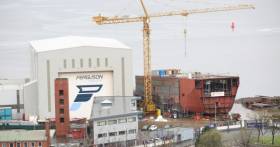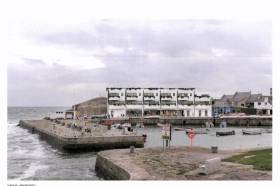Displaying items by tag: Public Ownership
Scottish Shipyard On the Clyde Taken Into Public Ownership
Shipyard Ferguson Marine has officially been taken into public ownership, the Scottish Government has announced.
The move, reports STV News, came on Tuesday after administrators agreed the final terms of the transaction with Scottish Ministers.
The yard will now be known as Ferguson Marine (Port Glasgow) Ltd.
There had been three other offers for the Inverclyde site, however administrators concluded the sale to the Scottish Government represented the best outcome for creditors.
Staff at the shipyard have been told of the latest position.
For more click here to read.
A contract has been signed by the Scottish Government to take the troubled Ferguson Marine shipyard into public ownership, reports The National.
It follows an agreement reached last month for the Government to take over the yard after the firm entered administration in August. A meeting of the board of directors of Macrocom – the company wholly owned by Scottish ministers that will own the Ferguson Marine business and assets – was held yesterday to consider and sign the contract.
Full completion of the contract and the final transaction is expected to take place in the coming weeks.
Finance Secretary Derek Mackay said the action taken would help to ensure a future for the yard. “Our focus has always been on ensuring completion of the two public sector ferries at the best value for money for the taxpayer, while also working towards the delivery of the other vessels under construction at the yard, and in doing so, securing jobs for the workforce,” he said.
More on the story here.
#BullochPublic - In a move being considered by Dun Laoghaire-Rathdown County Council, the local authority could bring land at Bulloch Harbour in Dalkey into public ownership.
The decision reports DublinLive, would also see the land developed in the public’s interest, was made at this month’s full meeting of the council.
A masterplan for the area cannot be considered by any planning authority unless it is submitted by the owners of the land being considered for development.
As a result, councillors have called on the council to consider taking ownership of the land.































































